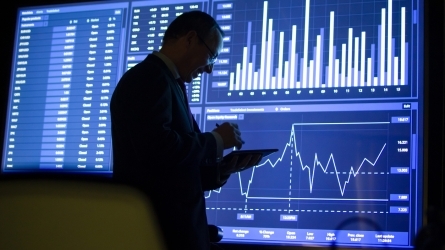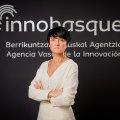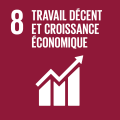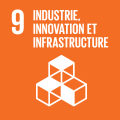
La innovación en la economía vasca. Situación, alcance y perspectivas
Description
La economía vasca ha sufrido grandes transformaciones desde la primera industrialización a mediados del s. XIX. A esas transformaciones han contribuido numerosos factores, pero sin duda alguna la innovación siempre ha estado presente y así se ha perfilado una estructuración económica propia y singular. Tras las necesarias y profundas transformaciones de finales del s. XX la economía vasca se ha visto en la necesidad de disponer de recursos variados que le permitan continuar siendo competitiva y la innovación ha pasado a ocupar un lugar cada vez más relevante. Además, el elevado grado de apertura de la economía mundial obliga a una mayor capacidad de adaptación al cambio y a pesar de que las oportunidades de internacionalizarse son mayores, también es mayor el número de actores que intervienen. Este hecho también provoca la necesidad de desarrollar mecanismos que mejoren la competitividad.
Saber cuál es la realidad de la economía vasca respecto a la Innovación resulta de gran relevancia para conocer cuál es el potencial competitivo de la misma. Quiénes innovan, cuánto se innova, qué recursos existen y cuál es el impacto de la innovación son preguntas a las que es necesario poder responder con agilidad y rapidez. En este contexto las estrategias públicas y privadas se convierten en elementos de análisis junto con la información disponible a través de la estadística oficial.
Objectives
Mostrar el grado de innovación de la economía vasca.
Analizar los mecanismos impulsores de la innovación para la mejora de la competitividad.
Comprender los factores facilitadores del ecosistema innovador de la economía.
Activity directed to
- All public
- Teachers
- Professionals
Program
08-07-2024
Registro
Institutional Opening session. Speaking order:
El subdirector de Coordinación técnica y difusión, Jose Jabier Zurikarai, saludará a los asistentes, dará la bienvenida y presentará a las personas que van a intervenir en la inauguración
- Itziar Alkorta Idiakez | Fundación Cursos de Verano de la UPV/EHU - Directora académica
- Josu Mirena Iradi Arrieta | Eustat - Director General
- Mikel Torres | Vicelehendakari Segundo y Consejero de Economía, Trabajo y Empleo del Gobierno Vasco
“La medición de la innovación: Fuentes, recursos y resultados“
- Maria Victoria García Olea | EUSTAT Instituto Vasco de Estadistica - Subdirectora de Producción y Análisis Estadístico
- Javier San Vicente Allfambra | EUSTAT Instituto Vasco de Estadistica - Responsable de estadísticas a empresas
Break
“El semestre europeo: I+D+I para la cohesión territorial“
- Cecilia Cabello Valdes | European Commission – Directorate General for Research & Innovation - Policy Officer
“Innovación para la mejora de la competitividad“
- María José Aranguren Querejeta | Orkestra - Directora General
09-07-2024
“Situación de la innovación en Euskadi. Contexto internacional, comparativa europea y análisis territorial“
- Alaitz Landaluze | Innobasque, Berrikuntzaren Euskal Agentzia / Agencia Vasca de la Innovación, Innobasque
“La investigación aplicada y sus resultados en Euskadi hoy“
- Jesús Valero Congil | Tecnalia - Director General
Break
“Más Ciencia, Más Talento, Más Innovación“
- Ivan Ubarrechena Belandia | Biofisika Institutua - Director
Round table: “Mejorar la innovación. Cómo innovar más“
- Jose Jabier Zurikarai Marcilla | EUSTAT Instituto Vasco de Estadistica - Subdirector Coordinación Técnica y Difusión (Moderator)
- Cristina Oyon | SPRI - Directora de Tecnología, Innovación y Sostenibilidad
- Eduardo Beltran de Nanclarés Echezarreta | Mondragon Corporación - Director de Innovación y Tecnología
- Fernando Cossio Mora | Ikerbasque - Director
Directors

Jose Jabier Zurikarai Marcilla
EUSTAT
Licenciado en sociología y máster en marketing. He desarrollado mi carrera profesional en el mundo de la estadística pública. He trabajado principalmente en las áreas de Difusión, con una incursión como responsable de Estadísticas Ambientales. Me inicié en el Ayuntamiento deVitoria-Gasteiz y de ahí pasé al área de Demografía de Eustat. Actualmente trabajo en Eustat como Subdirector de Coordinación Técnica y Difusión.
Speakers
Mari Jose Aranguren is the general director at Orkestra and Professor in Economics at Deusto University. She has worked at Orkestra since its beginning in 2006. Mari Jose is a recognised expert in the area of competitiveness and territorial strategy, cluster and networks, and the analysis and evaluation of policies, having published several books and articles in specialised national and international journals of impact. She has vast experience in leading national and international projects in the research areas previously mentioned and has worked closely with different agents of the Basque Country. In December of 2016 Mari Jose received a special recognition from Harvard’s Institute of Strategy and Competitiveness for her career and contribution to territorial competitiveness. From 2014 to 2016 Mari Jose was a member of the Advisory Group for the European Commission as part of the Horizon 2020 programme, in the Societal Challenge 6 ‘Europe in a changing world – Inclusive, Innovative

Eduardo Beltran de Nanclarés Echezarreta
Eduardo Beltrán de Nanclares es licenciado en Ciencias Físicas y Máster en Electrónica y Automática por la Universidad del País Vasco. Actualmente ocupa el cargo de Director de Innovación y Tecnología de la Corporación MONDRAGON. Eduardo tiene más de 25 años de experiencia en la gestión de la innovación y en el desarrollo de productos y tecnologías en sectores como Automoción, Electrodomésticos y Bienes de Equipo. Trabajó en General Electric, Tecnalia, Copreci y también en el Centro Tecnológico Koniker donde fue Director General. Desde Abril del 2011 Eduardo Beltrán es miembro del Board of Directors de EFFRA – European Factories of the Future Research Association.

Cecilia Cabello Valdes
C. Cabello Valdes is Policy Officer in DG Research & Innovation at the European Commission. She holds a Master of Science degree in Science, Society and Technology Studies from the Madrid Autonomous University (Spain) and a Bachelor of Science in Food Science from Michigan State University (USA). She has professional experience as coordinator and manager in various S&T policy units, with expertise in R&I policy, evaluation and STI indicators. Since previously worked at the Spanish Foundation for S&T (FECYT) directing and supervising various departments in the areas of Science & Society, R&I Indicators Policy Monitoring, Scientific Information & Infrastructures, Researcher careers and development, Science diplomacy and International projects. She currently is the Chair of the OECD NESTI (National Experts for S&T Indicators) Working Party.

Fernando Cossio Mora
UPV/EHU-Ikerbasque, Catedrático de Química Orgánica
Degree in Chemical Sciences from the University of Zaragoza (1982). Doctor in Chemical Sciences from the UPV/EHU (1986). Professor of Organic Chemistry at the UPV/EHU. He has been Dean of the Faculty of Chemistry / Kimika Fakultatea (1999-2001) and Vice-rector for Research and International Relations at the UPV/EHU (2001-2003). Since 2009 he has been the Scientific Director of Ikerbasque, the Basque Foundation for the advancement of science. Author of 230 international publications, 11 international invention patents and 5 books). Most relevant awards and distinctions: Almirall Award from the Spanish Society of Therapeutic Chemistry (1987), Euskoiker Award (2005), Ignacio Rivas Medal from the Royal Spanish Society of Chemistry (2011), Janssen-Cilag Spain Research Award from the Royal Society Spanish of Chemistry (2013). Corresponding academic of the Royal Academy of Exact, Physical-Chemical and Natural Sciences of Zaragoza (2016). Awarded with a Synergy grant from the European Research Council (ERC) in 2020 and Euskadi Research Award 2020
Maria Victoria García Olea
Eustat
Licenciada en Ciencias Económicas y Empresariales por la Universidad del País Vasco. Master en Hacienda y Finanzas Públicas por la Universidad del País Vasco. Desde 1985 trabaja en Eustat en distintos puestos: en el campo de las estadísticas económicas, en la elaboración de las Estadísticas del Sector Público y de las Tablas Input-Output, como responsable de las Estadísticas Estructurales, como responsable de las Cuentas Económicas y las Estadísticas del Sector Público y en el Area de Metodología del Instituto. En la actualidad es Subdirectora de Producción y Análisis Estadístico de Eustat. Ha realizado diversos estudios sobre la economía vasca.

Alaitz Landaluze
Alaitz Landaluze es licenciada en Ingeniería de Telecomunicaciones por la Universidad del País Vasco (UPV/EHU) y experta en políticas de ciencia, tecnología e innovación. En 2008 ingresó en la Agencia Vasca de la Innovación Innobasque. Actualmente dirige la Unidad de Políticas de Ciencia, Tecnología e Innovación. Esta unidad colabora con el Gobierno Vasco en el diseño y ejecución del Plan de Ciencia, Tecnología e Innovación 2030 gestionado por Lehendakaritza, así como en el diseño y gestión de varios programas de I+D e innovación de diferentes Departamentos. Además, trabaja también en el área de Educación STEAM, apoyando al Departamento de Educación en el desarrollo de la estrategia STEAM Euskadi y en proyectos como los Premios STEAM Euskadi, STEAM Sare o First Lego League Euskadi. Durante sus 8 años como director de Accenture, trabajó principalmente para grandes empresas de la industria energética como Iberdrola o Repsol. Cursó el AMP del Instituto de Empresa en 2021 y el Máster en Administración de Empresas (MBA) en la Universidad de Deusto en 2008, donde fue profesora en el Programa Master en Seguridad de la Información e impartió docencia en la Universidad del País Vasco en el Programa de Postgrado en Sistemas de Transporte.

Cristina Oyon
Cristina Oyón es Directora de Tecnología, Innovación y Sostenibilidad del Grupo SPRI, la agencia de desarrollo empresarial del Gobierno Vasco. Es responsable de la definición e implementación de estrategias de desarrollo tecnológico y empresarial y de los programas de apoyo en I+D+I de carácter industrial del Gobierno Vasco. Es Vicepresidenta de la asociación de agencias de desarrollo europea EURADA y miembro del Foro Industrial que asesora a la Comisión Europea en la implementación de la estrategia industrial. Lidera el grupo de expertos Mujeres en la Industria de World Manufacturing Foundation y la iniciativa Net Zero Basque Industrial SuperCluster que tiene por objetivo acelerar el camino hacia las emisiones netas cero de la industria vasca.

Ivan Ubarrechena Belandia
Instituto Biofisika (UPV/EHU, CSIC)

Jesús Valero Congil
TECNALIA Research & Innovation, Director General
Doctor in Biology from the UPV/EHU. Master in Marketing and Commercial Management from ESIC Business and Marketing School. Management expert for Biotech companies. More than 25 years of experience in Research and Technology Transfer. From 2019 to 2020 Deputy Director of Technology with responsibility for the entire technological portfolio of TECNALIA, including raising competitive public financing, technological KPIs and transversal activity of TECNALIA. From 2014 to 2019 at the head of the Health Division of TECNALIA, with 80 researchers in the areas of Neuroengineering, Medical Robotics, Biomaterials and Food Ingredients, and with a portfolio of more than 30 patents. During this period he was responsible for the FIK initiative, a €24 million public-private investment company in the Basque Country for the development, transfer and marketing of medical devices, giving rise to companies such as Fesia or Textia. He is currently General Director of TECNALIA. Member of the boards of several companies, including Fesia Technologies and Neos Surgery. Member of the Management Committee of several organizations such as EARTO, FEDIT, BRTA and the Elcano Royal Institute.

Javier San Vicente Allfambra

Jose Jabier Zurikarai Marcilla
EUSTAT
Licenciado en sociología y máster en marketing. He desarrollado mi carrera profesional en el mundo de la estadística pública. He trabajado principalmente en las áreas de Difusión, con una incursión como responsable de Estadísticas Ambientales. Me inicié en el Ayuntamiento deVitoria-Gasteiz y de ahí pasé al área de Demografía de Eustat. Actualmente trabajo en Eustat como Subdirector de Coordinación Técnica y Difusión.
Registration fees
| Face-to-face | Until 31-05-2024 | Until 08-07-2024 |
|---|---|---|
| 25,00 EUR | 59,00 EUR | |
| - | 84,00 EUR | |
| - | 71,00 EUR | |
| - | 59,00 EUR | |
| - | 0 EUR |
| Live online | Until 31-05-2024 | Until 08-07-2024 |
|---|---|---|
| 25,00 EUR | 59,00 EUR | |
| - | 84,00 EUR | |
| - | 71,00 EUR | |
| - | 59,00 EUR | |
| - | 0 EUR |
Venue
Miramar Palace
Pº de Miraconcha nº 48. Donostia / San Sebastián
Gipuzkoa
Miramar Palace
Pº de Miraconcha nº 48. Donostia / San Sebastián
Gipuzkoa
Sustainable development goals
Agenda 2030 is the new international development agenda approved in September 2015 by the United Nations. This agenda aims to be an instrument to favour sustainable human development all over the planet, and its main pillars are the eradication of poverty, a reduction in equality and vulnerability and fostering sustainability. It is a unique opportunity to transform the world up to 2030 and guarantee human rights for all.

8 - Decent work and economic growth
Foster sustained, inclusive and sustainable economic growth, full and productive employment and decent work for everyone. Key issues: decent work, full and productive employment, entrepreneurship, fostering micro-companies and SMEs, employment rights, safe working environments, youth employment, equal opportunities and pay, strengthening of financial institutions, and breaking the link between economic growth and the degradation of the environment.
More information
9 - Industry, innovation and infrastructure
Build resilient infrastructures, promote inclusive and sustainable industrialisation and foster innovation. Key issues: reliable, sustainable, resilient and quality infrastructures, inclusive and sustainable industrialisation, modernisation, clean and environmentally rational industrial technologies and processes, scientific research and improvement of technological capabilities, universal access to ICTs.
More information






